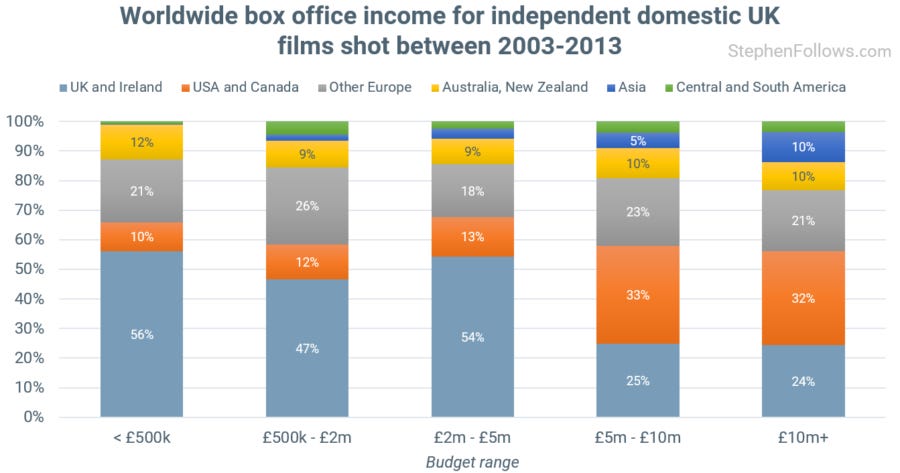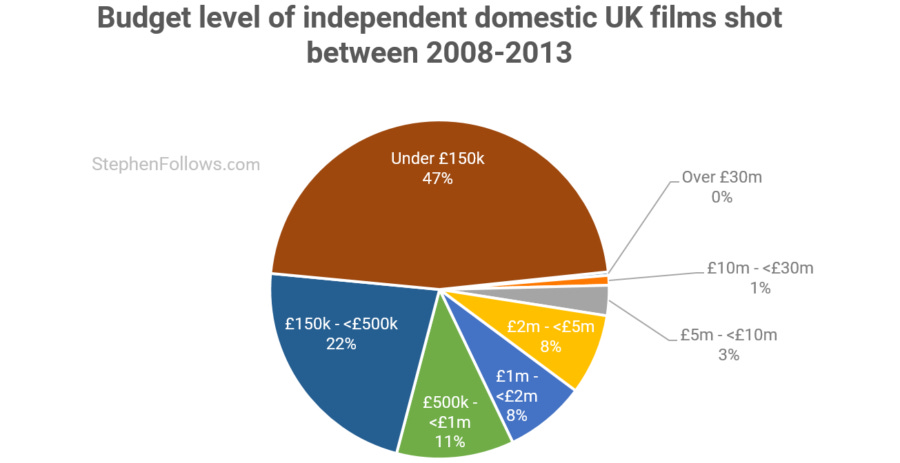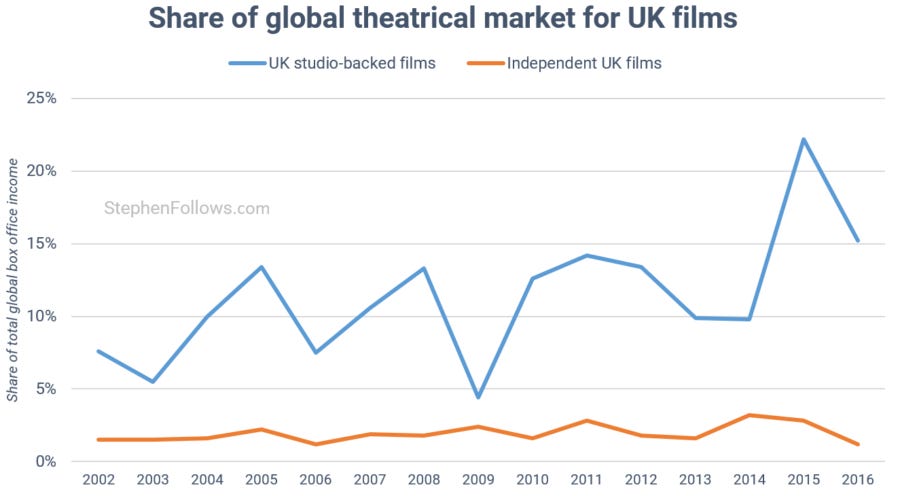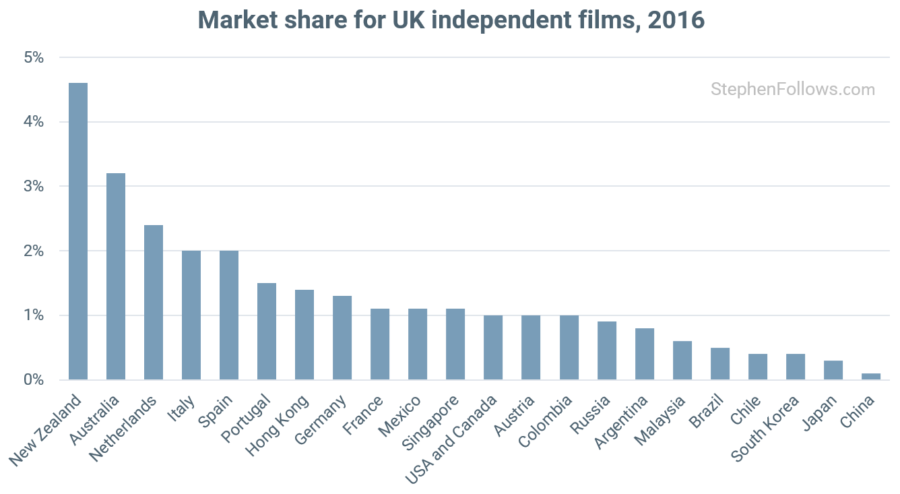How important is the UK theatrical market to British films?
Last month, I gave my annual lecture at the National Film and Television School (NFTS), looking at the business side of the UK film industry. It's an enjoyable lecture to give, in part because the audience is made up from across all the disciplines (so animators, cinematographers, directors, producers, production managers, etc). This mix often results in a wide variety of questions and this time there was a question I promised to explore further in a blog article.
The query was sparked by a section of my talk which showed that the majority of the box office income collected by most British films is collected in the UK. This surprised some attendees as the film industry is normally viewed by professionals as a global marketplace with plenty opportunities for foreign films to cross borders and earn money worldwide. The UK is just one country* and so, the question went, surely the UK income represents a small percentage of total earned by UK films? Today I will answer this question.
*Note: Film industry figures for the UK are typically for the UK and the Republic of Ireland as the two countries are treated as one territory.
Where in the world do British films earn money?
Below is the chart which raised the question. It's a BFI analysis of ComScore data which shows where UK domestic independent films earn their box office income around the world. The majority of films budgeted under £5 million earned over half of their global box office income from the UK.

At this point, it would be useful for us to consider how many films fall into the 'sub-£5m' range. Well, almost all! I don't have an annual breakdown of the data above but I was able to re-create the dataset for the final six years of the period (i.e. films shot in the UK 2008-13). Between 2008 and 2013, 95.8% of British independent films shot in the UK cost under £5 million.

How much of the global box office goes to UK films?
So far we have been focusing on independent UK films (i.e. those without the backing of a US studio). In 2016, these films collected just 1.2% of the global cinema box office (down from a high of 3.2% in 2014).
However, we have to remember that the UK film industry is not one thing but a tale of two worlds - the independents and the studio-backed productions. Due to the recent boom in studio-backed productions filming in the UK (see more about this here) it is not surprising that more of the global box office has been going to these mega "British" productions. Last year, 15.2% of global theatrical revenues went to films backed by US studios but shot in the UK.

Which countries are fans of UK independent films?
UK independent films are very popular in New Zealand, capturing almost 5% of the country's box office income in 2016. On the flip side, British indie films perform badly in many Asian countries, including China, Japan and South Korea.

So what types of British films do travel well?
Let's end our journey on a positive note by looking at which types of independent British films travel well. In 2016, the best performing independent British films included The Danish Girl, Florence Foster Jenkins, Eddie the Eagle and Absolutely Fabulous: The Movie. But are there any wider trends producers can take note of?
In 2012, David Steele authored a paper entitled 'International Territory Review' which looked at the global market for UK films. Among his fascinating findings was a pattern to the types of British films that perform well outside the UK. He noted that these films tended to fall into one of four types:
Biopics of significant British historical figures of international interest (The King’s Speech, The Iron Lady)
Medium budget British comedies with star actors (Johnny English, Nanny McPhee, Paul)
British films with a particular cultural or national connection to the territory in question (Senna, Jean Charles)
British films with story / content of universal appeal (Slumdog Millionaire, One Life)

Notes
Today's data came from the BFI, ComScore, David Steele and Olsberg SPI. The 'worldwide' data in the first chart is calculated using data from 24 major international markets, as there are a number of smaller markets where reliable data is not available. It's worth noting that this article only looks at the international and UK theatrical markets, and films will earn money in many other arenas (such as DVD, TV, VOD, etc). You can read more about that in a few of my past articles here, here and here.
Epilogue
Articles like this one today would not be possible without the hard work of the BFI's Research and Statistics Unit. Their work and publications mean that we as British filmmakers probably have more information about our home industry than any other nation of filmmakers.


